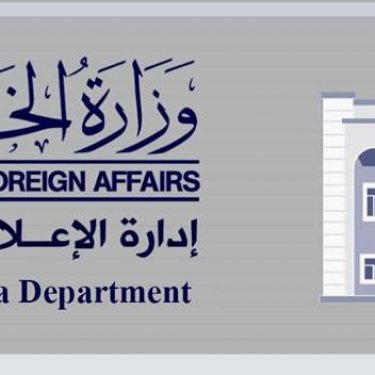Libya - Tripoli’s new rules put journalists’ lives in danger

Reporters Without Borders (RSF) calls on Libya’s Government of National Accord to stop obstructing and endangering foreign journalists and Libyan journalists who work for international media.
The foreign media’s ability to operate in Libya has declined dramatically since the GNA took office under Prime Minister Fayez al-Sarraj in March 2016, and has become almost impossible since CNN’s exclusive report in November 2017 about migrants being sold as slaves in Libya.
“This must seem unbelievable, but I found it much easier to work under Fajr Libya and the chaos prevailing at that time,” a correspondent for several foreign media outlets said. Like all of the journalists contacted by RSF, she asked not to be identified for fear of being permanently banned from working in Libya.
The GNA is constantly finding new ways to obstruct journalists, including long delays in issuing and renewing visas, countless other forms of red tape, and frequent harassment. All of the reporters contacted by RSF agreed that their job has become much tougher since Sarraj took over as prime minister.
Getting a visa
Obtaining a visa has become a very slow, laborious, expensive and unpredictable process since March 2016. Until then, foreign journalists could get a visa from the Libyan consulate in Tunis after submitting an application to the Libyan foreign ministry’s Foreign Media Department (FMD).
But it is different now. “Although the consulate in Tunis insists that it still issues visas to the foreign media, the standard procedure nowadays requires a sending a visa application to the FMD in Tripoli and continuing to follow it up with the FMD,” a journalist said.
“Even when the FMD tells us the request has been agreed, the consulate says it has received no confirmation to this effect. When we ask the FMD to send us a copy of the approval by email or post, in order to be able to show it to the consulate, they usually refuse, claiming that it is against the rules. As a result, a colleague hasn’t been able to go to Libya for the past year.”
This has forced journalists to apply via Libyan diplomatic representations in various European cities, above all Paris, where a former Libyan consulate employee offers his services as an intermediary for a 150-euro fee.
Bureaucratic harassment and obstruction
If a visa is eventually granted, reporting on the ground in Libya is an even bigger challenge. Every initiative, visit or interview needs one or several permits. A reporter said he waited ten days for authorization to visit a camp for migrants last December – a story that he said he wanted to cover when requesting his visa. And he waited in vain because he needed an extraordinary number of different permits, which he never obtained.
Another journalist said that even getting permission to do street interviews took an absurd amount of time. “I had to wait eight days for a permit to talk to people in Tripoli sidewalk cafés although I had only a 15-day visa,” she said. “You also need a permit to leave the city, to talk to a civil society group, or to talk to a mayor. Forget camps for migrants – I was refused a permit outright.”
At the end of last month, the FMD rescinded the accreditations of all the Tripoli-based correspondents of foreign media outlets on the grounds that it is creating new procedures. According to a copy of the new rules for journalists that RSF has seen, they are now required to wear a vest stamped with the word “press” and the AMD logo, and to hand over their microphones for “inspection.”
“These new regulations are putting the lives of journalists in danger and are turning them into targets for the armed militias,” said Souhaieb Khayati, the head of RSF’s North Africa bureau.
Even more seriously, some Libyan correspondents for foreign media report being harassed. Requesting anonymity for fear of reprisals, one said he had been harassed and threatened by the FMD’s director and had even been summoned for interrogation.
Foreign journalists are now escorted by agents who say they work for the intelligence services. Everywhere they go and everything they say and do is monitored. “At the FMD, I was told that this has been necessary since the CNN report, and that the government could no longer allow journalists to work on their own,” one reporter said. Another said the escorts have complete control over the journalists when they are on the move.
“The Sarraj government will not succeed in giving Libya a positive image by harassing foreign journalists and media,” RSF’s Khayati said. “With just months to go to general elections, the government needs to give significant evidence of support for the freedom to inform, so that a democratic debate can take place. To this end, journalists and media must be able to fully play their role.”
Libya is ranked 162rd out of 180 countries in RSF's 2018 World Press Freedom Index.



